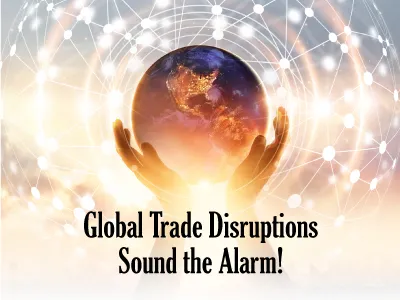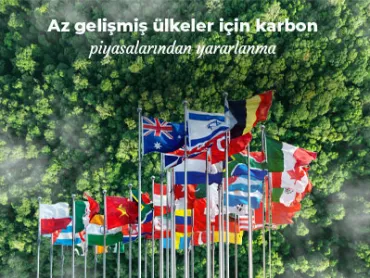
Red Sea, Black Sea, and Panama Canal: UNCTAD warns of disruptions to global trade.
The organization warns that increased attacks on ships in the Red Sea are further complicating shipping routes affected by conflict and climate change. UNCTAD, the UN's trade and development body, has also highlighted growing disruptions to global trade as a concern.
Recent attacks on ships in the Red Sea, geopolitical tensions affecting maritime transport in the Black Sea, and climate change have led to a complex crisis affecting key trade routes, with the impact on the Panama Canal intensifying, it said. Summarizing the organization's detailed analysis of the situation at the UN's daily press briefing on 26 January, Jan Hoffmann, UNCTAD's Head of Trade Logistics, underlined the critical role of maritime transport in international trade, noting that it is responsible for about 80 percent of the global movement of goods.
In addition, the ongoing conflict in Ukraine has triggered significant shifts in oil and grain trade, reshaping established trade patterns. Meanwhile, the Panama Canal, another key artery for global trade, has been experiencing a severe drought that has lowered water levels and caused a staggering 36 percent reduction in total transits last month compared to a year ago. Therefore, the long-term effects of climate change on the canal's capacity have raised concerns about lasting impacts on global supply chains. At the same time, the crisis in the Red Sea, where Houthi-led attacks have disrupted shipping routes, has added to the complexity.
Container Ship Passages Fall as Freight Rates and Emissions Rise
In response to the Red Sea crisis, significant players in the shipping industry have temporarily suspended Suez crossings. In particular, weekly container ship transits dropped by 67 percent, while tanker transits and gas carriers also saw significant declines.
Meanwhile, shipping prices have also significantly increased, with a $500 increase in average container spot freight rates in the last week of December, the highest weekly increase ever. However, average container shipping spot rates from Shanghai have more than doubled (122 percent) since early December. More specifically, rates from Shanghai to Europe have more than tripled (256 percent), while rates on the west coast of the United States have risen 162 percent, even though ships on this route do not pass through the Suez Canal.
Insurance Premiums Also Rise, Increasing the Total Cost of Transit
In addition, ships diverted through the Suez and Panama Canal routes had to travel faster to compensate for the detours, burning more fuel per mile and emitting more CO2. "Here we see the global impact of the crisis, as ships are looking for alternative routes," Hoffmann said, adding that these emissions exacerbate environmental problems.
Global Impacts: Increases in Energy and Food Prices
UNCTAD Highlights the Far-reaching Economic Impact of These Disruptions.
Prolonged disruptions, particularly in container transportation, directly threaten global supply chains, increasing the risk of delayed deliveries and higher costs. While current container prices are around half of the peak seen during the COVID-19 crisis, it will take time for higher prices to trickle down to consumers, and the full impact will not be seen for another year.
Energy prices have risen significantly due to the suspension of gas transit, which directly affects energy supply, especially in Europe. The crisis is also affecting global food prices. This is because longer distances and higher freight rates potentially increase costs. The most important example is the disruptions in grain shipments from Europe, the Russian Federation, and Ukraine. The war affects consumers and reduces prices paid to producers, posing a risk to global food security.
Impact on Developing Countries and the Need for Collective Action
"Developing countries are particularly vulnerable to these disruptions, and UNCTAD remains vigilant in monitoring the evolving situation," Hoffmann said. The Organization stressed the urgent need for the maritime sector to adapt quickly and for strong international cooperation in the face of rapidly reshaping global trade dynamics. The current challenges underscore the vulnerability of trade in the face of geopolitical tensions and climate-related challenges and require collective efforts for sustainable solutions, notably to support countries that are more vulnerable to these shocks.
 Back
Back







